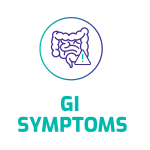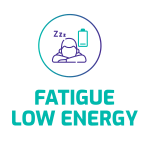Fatigue / Low Energy
At iLabMD, we're here to guide you through your life journey.
Feeling Fatigued or Constantly Running on Low Energy? Learn More Here.
Fatigue, which is a common symptom experienced by many people, can have various root causes, and it often results from a combination of factors. Identifying the specific cause of fatigue may require medical evaluation and a thorough assessment.
Here are some common root causes of fatigue
Poor sleep quality or insufficient sleep is a leading cause of fatigue. Conditions such as insomnia, sleep apnea, restless legs syndrome, and circadian rhythm disorders can disrupt sleep patterns and leave individuals feeling tired.
Emotional stress, chronic worry, and anxiety can lead to mental and physical fatigue. The body’s stress response can result in elevated levels of stress hormones, which can be exhausting over time.
Various medical conditions can cause fatigue. These include chronic illnesses like diabetes, heart disease, thyroid disorders, anemia, autoimmune diseases, and chronic kidney disease.
Certain medications, including some antidepressants, antihistamines, and blood pressure medications, can have fatigue as a side effect.
CFS is a complex and poorly understood condition characterized by severe, unexplained fatigue that doesn’t improve with rest. Sometimes its cause is related to gut dysbiosis
Inadequate intake of essential nutrients, such as iron, vitamin B12, vitamin D, or folate, can lead to fatigue.
Paradoxically, a sedentary lifestyle can lead to feelings of tiredness. Regular physical activity can improve energy levels and reduce fatigue.
Diets high in sugar, processed foods, and empty calories can lead to energy spikes and crashes, contributing to fatigue.
While moderate caffeine consumption can provide a temporary energy boost, excessive caffeine intake, especially in the afternoon or evening, can disrupt sleep patterns and lead to fatigue.
Conditions like sleep apnea, narcolepsy, and insomnia can disrupt sleep quality and lead to chronic fatigue.
Hormonal fluctuations, such as those occurring during menopause, pregnancy, or thyroid dysfunction, can contribute to fatigue.
Certain infections, such as mononucleosis (mono), influenza, and chronic infections, can lead to prolonged periods of fatigue.
Exposure to environmental toxins, poor air quality, and workplace stress can contribute to feelings of fatigue.
Identifying the root cause of fatigue often requires a medical evaluation and may involve a combination of lifestyle changes, dietary adjustments, stress management, and, in some cases, medical treatment. If you are experiencing persistent or severe fatigue, it's essential to consult a healthcare professional for a comprehensive assessment and personalized guidance on managing and addressing the underlying causes.










